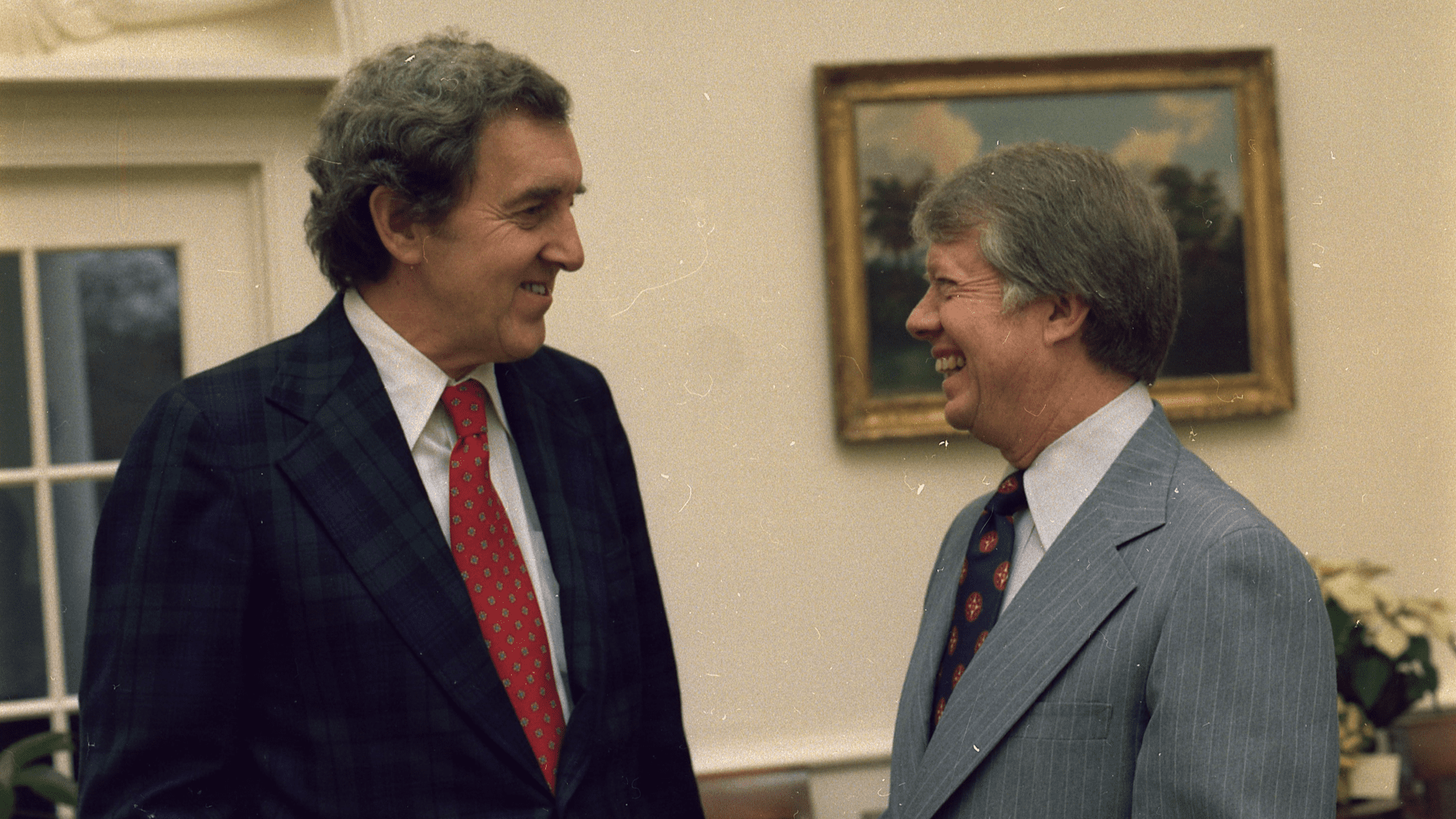Generational divides in politics are not new. But how young people are reacting to today’s political world should give older politicians cause for alarm.
Or, to put it another way, 81-year-old Joe Biden and his advisors should think back to the lessons of their youth. Perhaps part of the problem he faces today is that he did not really understand the politics of his own generation.
In the late 1960s and early 1970s, the Democratic Party was torn apart — over the Vietnam War, over lifestyle issues, over drug use. Lyndon Johnson was brought down by young anti-war activists. Students shaved their beards, cut their shaggy hair, shed their casual clothes and got “Clean for Gene” McCarthy, stomping through the snows of New Hampshire to send a clear message — young voters wanted an end to the war in Vietnam.
They were tired of old men (far fewer women were in positions with political power then) making decisions that affected the lives of young people.
McCarthy’s campaign — and then that of Robert F. Kennedy, later felled by an assassin — did not succeed in gaining the 1968 nomination, but Democratic politics were forever changed.
The streets of Chicago were bloodied during the 1968 Democratic National Convention; while LBJ’s designated successor, Vice President Hubert Humphrey, was nominated, the party was forever changed. Backroom politics was dead; future nominees would be chosen openly, in a process that represented the views of those who participated in the nominating process.
Old-time, establishment Democrats did not believe the process would really change. The front-runner for the 1972 nomination, Maine’s Edmund S. Muskie, a three-term U.S. Senator who had been Humphrey’s vice presidential running mate, ran a traditional campaign for the presidential nomination.
He sought and received endorsements from political leaders all over the country; he presented himself as the logical nominee; he brandished his credentials as an experienced successful politician with policy expertise and connections to elected officials, political leaders, and labor organizers in every corner of the nation.
And he — and the other establishment politicians who sought that nomination — lost badly, to South Dakota Senator George McGovern, an upstart and an outsider who ran as a liberal alternative to establishment, moderate “gray suits,” the elders of the party.
McGovern promised an immediate end to the Vietnam War and passage of liberal social and economic programs. His supporters turned out at caucuses and primaries; they unseated long-time politicians and labor leaders. They redefined the process and the party.
And, of course, McGovern lost the general election badly. The lesson should not have been that he lost because he bucked the establishment; many factors contributed to his loss — but democratizing the nomination process was not prime among them.
Joe Biden won his seat in the United States Senate in that election year. He was not part of the McGovern movement; in his campaign he stressed his youth (he was 29 when elected, not even eligible to serve until his 30th birthday in late November) and vigor as opposed to the staid reticence of his 61-year-old opponent.
He did call for a quick end to the war in Vietnam, but on many other issues, including many of the social issues that McGovern supporters favored, he was decidedly moderate.
Jump to 2024. Mainers of a certain age see Biden in the role of Muskie and the political establishment. He is relying on his experience and his expertise — and, in his view, his record of accomplishment in his first term. He is supported by all of the party leaders who have worked with him.
He is dumbfounded that the voters, particularly young voters, do not recognize his accomplishments and support his candidacy (particularly against Donald Trump, who, Biden must believe, has no appeal to young voters).
But not since the late 1960s has the generational divide in the Democratic Party been so evident. Young voters — particularly young Democratic voters — differ from older voters on issue after issue.
According to a mid-November NBC News poll, young voters prefer a generic Republican candidate (think Nikki Haley) over Biden. They even prefer Trump over Biden, though that finding is within the poll’s margin of error.
Three concerns stand out when one looks at the poll. First, young voters are not optimistic about the future of the nation’s economy and what that bodes for their own future. They are pessimistic that the American Dream, that if you work hard you will get ahead, that the next generation will be better off than this generation, is realistic any longer.
In fact, more than 75% of the poll’s respondents feel that the next generation will not be better off than is the current generation.
Second, the Israeli-Hamas war is dividing the country and the Democratic Party, largely because of a gaping generational divide. Biden’s approval rating on foreign policy is below 40%. The younger generation (defined by the poll as those 18-35, roughly the Generation Zers) is driving this negative assessment, largely because they believe that our policy toward the Middle East is too one-sided.
Neither the viciousness of Hamas’ attack on Israel, nor the Biden administration’s efforts to restrain Israel’s response, nor the administration’s key role in hostage negotiations, nor arguing for increased humanitarian aid for the Palestinians has affected that view.
Foreign policy is more determinative of political views in this context than it has been at any time since the Vietnam War.
Third, Biden’s age — and how he presents himself publicly — remains a key issue for young voters. They want someone who can speak to their generation — and they are not finding it in Biden nor in Trump, which is why the vast majority prefer any generic candidate to the two likely nominees.
These concerns are not set in stone — and, as Biden supporters frequently point out, the election in November 2024 will be a choice between real people, not between one and an ideal.
But the Biden campaign should view all of this with alarm; his problems are not similar to those of other first-term presidents seeking re-election, much as they like to make those comparisons.
The strategic question they face is different. And it is the same question that Ed Muskie faced — and did not answer.
How do you convince the public, particularly the young public, to support a candidate who is experienced, qualified, successful politically and in governing, respected by peers who have worked closely with him, and a recognized world leader, but who is unable to communicate those qualities in public settings, particularly to young voters?
The question is not who Joe Biden is — Ed Muskie would have been an outstanding president. The question is communicating who he is to an audience who seemingly does not want to hear it.







